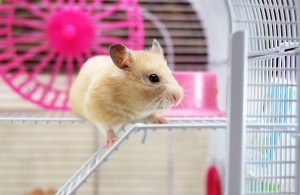the art of turning minimalist: carving out creativity in a hamster-wheel consumer culture

1
In his book HOW WILL YOU MEASURE YOUR LIFE? Clayton Christensen explores the decisions people make that result in happy or unhappy lives (and possibly jail time).
One way to doom yourself to unhappiness is to choose a job based on compensation alone.
Christensen distinguishes between hygiene factors and motivation factors.
Hygiene factors are the things that can’t make you love your job (or, presumably, your life) – but can cause you all sorts of problems.
Bad hygiene must get fixed, or you’ll get miserable.
Compensation, it turns out, is a hygiene factor. You have to feel that your compensation is fair. If it isn’t, you’ll be pissed. But if it improves, you’re not going to suddenly be happy (if you aren’t already). As Christensen points out:
“The opposite of job dissatisfaction isn’t job satisfaction, but rather an absence of job dissatisfaction. They’re not the same thing at all. It is important to address hygiene factors such as a safe and comfortable working environment, relationship with managers and colleagues, enough money to look after your family – if you don’t have these things, you’ll experience dissatisfaction with your work. But these alone won’t do anything to make you love your job – they will just stop you from hating it.”
2
The things that offer true satisfaction, that create within us a sense of well-being, are the motivation factors. They include challenging work, recognition, responsibility, and personal growth.
“Feelings that you are making a meaningful contribution to work arise from intrinsic conditions of the work itself. Motivation is much less about external prodding or stimulation, and much more about what’s inside of you, and inside of your work.”
A person would be wise, if happiness is his or her main consideration, to choose a career based on motivation factors. Work that is meaningful to you, that is interesting and challenging and allows you to grow, that provides opportunities to increase your responsibility. Stuff like that.
Instead, so many of us tend to make hygiene factors, like status and income, the main criteria.
We tell ourselves we’ll work that job just long enough to pay off our student loans, and then pursue something that feeds the soul, that saves the world.
Problem is, as the income expands, the lifestyle expands. And it’s not easy, or fun, to cut back. Researchers have discovered that the brain registers a blow to your social status in the same area that registers physical pain. (This makes sense, from an evolutionary perspective – we needed each other to survive, and social exile often meant death.)
Not to mention that human beings have an uncanny ability to get used to material comforts.
Yesterday’s privilege becomes tomorrow’s necessity: we didn’t know we wanted it, but how could we give it up?
3
I used to go shopping a lot: because I could, and because I was miserable. There’s a New Yorker cartoon where a well-heeled woman asks a salesperson: “But what would you suggest to fill the dark, empty places in my soul?” As it turns out, footwear won’t do it.
And what struck me, even then, was the crazed spinning hamster wheel of consumerism. There is no enough. There is always another event, another dress, another season, another clutch, another stylish woman to envy, another expectation to meet, another reason to feel insecure, another glossy fashion magazine, another beautiful item hovering just outside your price range.
No matter what you can afford – and I could afford a lot – you will crave what you can’t. There’s always another level. It doesn’t end.
Unless you step off the wheel – or, better yet, avoid getting on in the first place.
Unless you learn to say: Enough.
3
What I crave now – is minimalism.
And I don’t mean deprivation. (Frankly, I’m not that type of girl.) As Leo Babauta puts it:
“Minimalism hasn’t been about living with as little as possible….It’s been about removing the extraneous, so that the essential things have space to live.”
But first, you have to decide what those essential things even are. Perhaps one of the benefits (I use the word loosely) of consumerism is the distraction it offers, the fantasy it holds out of who we will become if only we buy this and this and this.
Minimalism, on the other hand, forces us to consider the truth of who we are. You can disappear into your clutter. But when you live a well-edited life, you have to sift and sort and prioritize. What you keep makes a statement about your identity…simply because it is there.
Everything you have tells a story. The story of you.
That kind of story demands clarity.
And with clarity, comes focus.
And with focus, comes the freedom to do what you love.
4
In art, ‘negative space’ is the space around and between the subject(s) of an image that defines the image itself.
Stepping away from the churn of consumerism is, I think, an embrace of negative space. It’s the kind of space that offers possibility. It gives you room to grow. It is the blank canvas, the fresh page, the spot of solitude where you can hear yourself think. It is a release of energy, unblocked, unhindered.
To carve it out of a consumerist culture –
– is an ongoing challenge. But in that space, you can find out what’s inside of you. You can create your self, your relationships, your life.
And maybe even some happiness.








